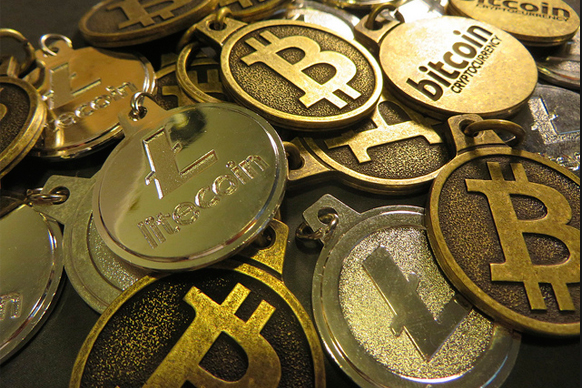The cryptocurrencies will be by all the world
One of the doubts or questions that we get most frequently every day is about whether cryptocurrencies will disappear? It is a fact that the cryptos have evolved and we could say that it is the future. We must remember that in 2009 the first virtual currency to appear was Bitcoin. Since then, cryptocurrencies have continued to grow, with a large number of digital currencies alternative to Bitcoin, each with a peculiarity. And all with their own features and applications, those with the highest market capitalization are at least a minority, which includes bitcoin, bitcoin cash, ethereum, litecoin, ripple and dash. Cryptocurrencies are virtual currencies that can be exchanged and operated like any other traditional currency, with the difference that there is no bank that they have to depend on, and they are beyond the control of governments and financial institutions, as something new and unknown for many economists. The cryptocurrencies were conceived as a completely conventional payment solution. At this time, many stores accept cryptocurrency as a form of payment, which has been a breakthrough. That is why now digital currencies is one of the most outstanding news that exists. The market capitalization of digital currencies today is higher than ever, according to CoinDesk. Years have passed and different nations have participated in initiatives and projects to better understand this concept and see how it can benefit the population. There are already some countries that have legalized, adopted or already have their own cryptocurrency, and as an example these are the following:
In Isalanda has its own cryptocurrency called Auroracoin and is in operation since 2014. Its creator is Baldur Friggjar Óðinsson, being anonymous which distributed to 10 percent of the population. Auroracoin has an exchange, a documentary and an advertising campaign.

In France it has its own cryptocurrency called Francs, inspired by Bitcoin and with 11 million francs in circulation. Its name is reminiscent of the old French currency before the implementation of the euro, the franc.

In Scotland it has its own cryptocurrency called Scotcoin, according to the ScotCoin Project its use is not limited to the country only. It was founded in 2013 by Derek Nisbet, you can use this altcoin in several shops in Scotland to buy clothes, visit bars, as payment for website designs and even pay the entrance to the Scottish Maritime Museum.

In Peru they have their own cryptocurrency called Incakoin, and its launch was made in 2013. Its developers created it as an alternative to Bitcoin, as a cryptocurrency with a fairer distribution, as well as being more environmentally friendly because it consumes less electricity than other cryptocurrencies.

In Spain it has the Pesetacoin cryptocurrency It was designed in 2014 from Bitcoin and Litecoin by CryptoMP. The Pesetacoin limit was stipulated in 166,686,000 as a tribute to the old change of pesetas to euros in December 1998: this amount was equivalent to 1 euro.

In Argentina they have Bitars as a ciptomoneda, created by a Cryto-Nerd group after a fundraising campaign. The developers hope that this cryptocurrency can be coupled to the Argentine soil, where the use and influence of Bitcoin is one of the largest in the region. For the moment, its market capitalization is not available nor is there any more data on the cryptocurrency. In addition, Argentina will install 250 ATMs that will allow operations with both fiat money and cryptoactive money. But in other countries crypts have also been allowed, as in Japan, which was legalized and this has led the nation to become one of the main Bitcoin markets in the world. Followed by the United States, Canada, Australia, and in the European Union Bitcoin is considered as a product, but not a currency, and among other countries that are still thinking about legalizing or creating their own cryptocurrency, this is why this never goes fall. In addition Every time Bitcoin continues to travel every corner of the world, it is something that gives you security because it will never have tertiary and will be available to everyone.
On the other hand, we have Venezuela, a country that has been submerged in a deep financial crisis. The president, Nicolas Maduro Moros, proposed the initiative to work with the petro, a cryptocurrency backed by oil, each petro would have the value of a barrel of oil. oil that is approximately $ 65, in the future also announced that it would be backed with gold and diamonds. However, the lack of credibility on the part of the people towards this initiative is reflected in the low popularity of the currency, likewise, the head of government clarified that the petro would be a fully centralized currency and that it could not be mined, this disappointed to some people willing to work with this cryptocurrency. On the other hand, there has not yet been an optimal development and this cryptocurrency has not been officially published, information about this initiative is still awaited.

In that same order of ideas, we see how cryptocurrencies influence the world. It is still a new idea and has yet to be developed in many countries, however, a continent could not eliminate this cryptocurrency. Likewise, onions should continue to be promoted especially in the most popular social networks, so that it is a matter of time when they invest a lot of money in them.
